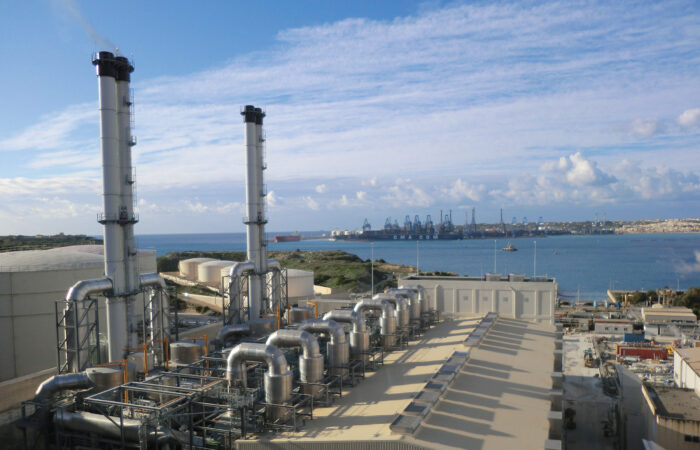Leslie G. Manison*
Decisions on the appraisal, risk assessment and possible partnership arrangements with the private sector, as well as project management of public investment projects, are increasingly being taken with little regard to the potential economic and environmental viability of such projects, and whether they contribute to the welfare of the population as a whole.
Shifts in decision-making
This deterioration is largely due to profound changes in the bodies that influence decision-making on major investment projects, some of which are partly funded by the EU. Prior to the government administration of Glafcos Clerides from 1988 to 1998, the former Planning Bureau in Cyprus, in cooperation with the publicly owned but independent Development Bank, exercised considerable power and expertise in the evaluation and financing of investment projects, as well as in determining the structure of public-private partnerships in the formulation and implementation of investment projects (PPPs).
However, during the years of the Clerides government, the power of the Planning Bureau staff was steadily reduced and transferred to the Ministry of Finance. And a few years later, this transfer of power and politicisation of decision-making was intensified under the Anastasiades government from 2013 onwards, when the Planning Bureau was incorporated into the Ministry of Finance and renamed the ‘Directorate-General for European Programmes for Coordination and Development’.
As a result, key advice and final decisions on the evaluation, financing and awarding of major public sector projects were mainly taken by members of the Council of Ministers, together with their political and business associates. And the ex-president himself appears to have become highly influential, allegedly awarding the Vasiliko project without competitive tender to a company with virtually no experience in building LNG terminals.
Impact
In the early years of the first Anastasiades government, the European Commission was critical of the increasingly poor and relatively low use of EU funds for investment and structural reforms. Indeed, the September 2015 Memorandum of Understanding states that “the [Cypriot] authorities will ensure that the institutional capacity to implement current and future programmes is improved and that adequate human resources are available in the managing and implementing authorities”, and I would have added “and effectively used”.
Absorption of EU funds remains low and as of August 2024, disbursed funds from the Recovery and Resilience Facility amounted to €264 million or 21% of the total €1.2 billion available to Cyprus for the period 2021-2026.
While the very low absorption of EU funds is disturbing, it is the failure to use both public and EU funds productively in economically viable and environmentally friendly investments that should be of most concern to Cypriot policymakers and taxpayers. It has been suggested that there may be concerns regarding the priorities of some government officials and private sector partners in the negotiation and awarding of projects. Some observers worry that the focus might be more on immediate financial benefits rather than on thoroughly assessing the long-term impacts on economic development and environmental sustainability. And do those who make the decisions to award projects seriously consider whether the successful contractor has the capacity to complete the project on time and to specification? Indeed, the lack of such careful consideration seems to have been the situation in the Vasiliko and Waste Management projects in particular.
Institutional procedures
Indeed, the institutional procedures for the evaluation, selection, formulation and awarding of projects provide ample scope for the exercise of political influence and corruption, and the potential for personal financial gain. Under these procedures, government ministries and agencies initially propose projects in their budgets that are supposed to be in line with government policy. In preparing project proposals, little consideration is given to the potential economic viability and environmental impact of each project, and the main concern is whether its cost fits within the budget allocated by the Ministry of Finance and whether EU funds are available to finance it. Subsequently, cost-benefit and risk analyses are used to prioritise projects.
Each ministry then prepares the selected projects, often with specifications biased in favour of a particular contractor, sometimes the project designer, and invites tenders to bid on and implement these projects. However, unsuccessful bidders can appeal against the winner to the Tenders Review Authority by paying relatively low fees and without providing detailed explicit reasons for the appeal. Moreover, as the number of these low-cost appeals is unlimited, government officials claim that endless appeals are a key factor in explaining the long delays and even cancellations of many EU-funded projects.
Therefore, with unlimited appeals and government ministries wanting to fully use their budget allocations of EU funds, these bodies are forced to scramble and include lower priority and/or previously non-EU funded investments in their budgets for EU projects. And this messy and time-consuming process seriously reduces the quality of public investment.
Concluding remarks and recommendations
Despite repeated recommendations by the European Commission and promises by the Cypriot authorities of reforms and measures to substantially improve the institutional capacity of Cyprus to use EU funds more effectively in its public investments, including for the green and digital transitions, little has been achieved and scandals related to incomplete projects and wasteful use of EU funds prevail.
The current Cypriot government, like its predecessor, does not seem willing or able to effectively use its development budget allocations, most of which are for public investment projects. Over the last decade, the implementation rate of government development spending has averaged less than 65%, with a significant part of this spending going on land annexations and low priority projects such as the renovation of courthouses. And in the first six months of 2024, development spending amounted to only 22% of the amount budgeted for the year, as the implementation of projects such as the Larnaca marina and the Vasiliko LNG terminal were severely delayed.
In managing public finances, the government needs to give much greater priority to the quality of public services and investment than to the generous remuneration of its bloated army of employees and consultants. Indeed, it is shameful that in the first six months of 2024, the government’s inequitable compensation of its well-paid employees rose by a staggering 12.5%, while gross capital expenditure excluding land annexation fell by a steep 20.9%. Following the large increases in wages and salaries of public sector employees from 2019 to 2023, their average compensation was estimated to be around 2.2 times that of private sector employees, excluding those in the banking and insurance sectors.
Given that decision-making on the design of major investment projects is perceived by some as heavily influenced by potentially concerning relationships between government ministers and officials and their private sector counterparts, who show limited willingness and competence in dealing with economic, financial and environmental issues, fundamental institutional changes are needed. As has longvulnerable been recommended by Savvakis Savvides and this author, there is an urgent need to establish an independent, development-type financial agency with apolitical technical expertise to appraise, formulate and finance large-scale investment projects.
In addition, the need for greater efficiency and real competition in the awarding of selected projects for implementation requires that the procedures of the Tender Review Authority be streamlined, with the number of appeals limited and accompanied by substantive reasons for any appeal. In addition, this authority needs decision-makers who are competent to judge whether companies bidding for public contracts can fulfil the terms of the contract and effectively complete the awarded project.
Moreover, even with fundamental institutional changes and reforms, the decision-making system for evaluating, formulating, financing and executing public investment projects would remain fragile and potentially vulnerable to incompetence and corruption. Undeniably, unless those responsible for past and ongoing poor public investment decisions are held accountable and prosecuted by the legal authorities, healthy economic development and environmental protection will continue to be seriously hampered by the lack of productive public investment in Cyprus.
*Leslie G. Manison is Founder and Consultant, LG Manison Consulting Services, formerly Advisor to the Minister of Finance, Republic of Cyprus. The article was originally published in the Cyprus Mail.




